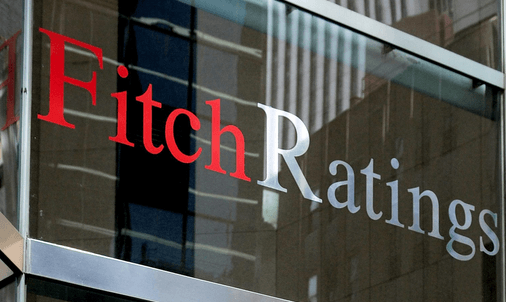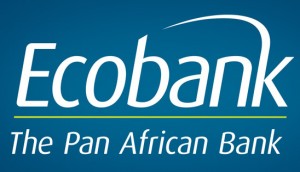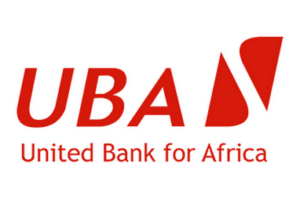Fitch downgrades three Ghana banks following country junk rating
 The economic woes of Ghana continues to deepen, as managers of the economy remain oblivious and take no responsibility. The President, Nana Akufo-Addo recently said his government couldn’t be blamed for going to the International Monetary Fund to seek help for an economy that has been wrecked by his own government’s bad decisions, poor judgement and borrowing too much for consumption.
The economic woes of Ghana continues to deepen, as managers of the economy remain oblivious and take no responsibility. The President, Nana Akufo-Addo recently said his government couldn’t be blamed for going to the International Monetary Fund to seek help for an economy that has been wrecked by his own government’s bad decisions, poor judgement and borrowing too much for consumption.
About a week ago, Fitch Ratings, one of the global ratings agencies which ratings are taken serious by international market players has downgraded three Ghanaian banks to junk soon after downgrading the country.
Fitch announced the downgrade of Ecobank Ghana Limited’s, Guaranty Trust Bank (Ghana) Limited’s (GTB Ghana) and United Bank for Africa (Ghana) Limited’s (UBA Ghana) Viability Ratings (VRs) to ‘ccc’ from ‘b-‘.
The agency affirmed the Shareholder Support Ratings (SSRs) of Ecobank Ghana at ‘ccc+’ and of GTB Ghana and UBA Ghana at ‘b-‘.
 “The Long-Term Issuer Default Rating (IDR) of Ecobank Ghana has therefore been downgraded to ‘CCC+ from ‘B-‘ while those of GTB Ghana and UBA Ghana have been affirmed at ‘B-‘. The Outlook on the Long-Term IDRs is Stable,” Fitch said, adding, “Fitch has simultaneously withdrawn Ecobank Ghana’s ratings for commercial reasons and will no longer provide ratings and analytical coverage for Ecobank Ghana.”
“The Long-Term Issuer Default Rating (IDR) of Ecobank Ghana has therefore been downgraded to ‘CCC+ from ‘B-‘ while those of GTB Ghana and UBA Ghana have been affirmed at ‘B-‘. The Outlook on the Long-Term IDRs is Stable,” Fitch said, adding, “Fitch has simultaneously withdrawn Ecobank Ghana’s ratings for commercial reasons and will no longer provide ratings and analytical coverage for Ecobank Ghana.”
According to Fitch, the rating actions follow the downgrade of Ghana’s Long-Term IDR to ‘CCC’ from ‘B-‘ on 10 August 2022.
Days after Standard and Poor’s downgraded Ghana to junk, Fitch also downgraded the country from B- to CCC. Fitch doesn’t typically assign outlooks to sovereigns with a rating of CCC+ or below. A Fitch CCC rating is junk.
According to Fitch, the downgrade reflects deterioration of Ghana’s public finances, which has contributed to a prolonged lack of access to Eurobond markets, in turn leading to a significant decline in external liquidity.
“In the absence of new external financing sources, international reserves will fall close to two months of current external payments (debits in the current account) by end-2022,” it said.
 Among other things Fitch says following the downgrade of their VRs, the banks’ Long-Term IDRs are now solely driven by the likelihood of extraordinary support from their parents, Togo-based Ecobank Transnational Incorporated (ETI: B-/Stable) and Nigerian-based Guaranty Trust Bank Limited (GTB: B/Stable) and United Bank for Africa Plc (UBA: B/Stable).
Among other things Fitch says following the downgrade of their VRs, the banks’ Long-Term IDRs are now solely driven by the likelihood of extraordinary support from their parents, Togo-based Ecobank Transnational Incorporated (ETI: B-/Stable) and Nigerian-based Guaranty Trust Bank Limited (GTB: B/Stable) and United Bank for Africa Plc (UBA: B/Stable).
The Stable Outlook on the Long-Term IDRs reflects those on their parents’ Long-Term IDRs. GTB Ghana’s and UBA Ghana’s Long-Term IDR is at the same level as Ghana’s Country Ceiling of ‘B-‘, which captures Fitch’s view of transfer and convertibility risk within Ghana.
On UBA Ghana’s and GTB Ghana’s SSR of ‘b-‘ Fitch says it reflects a limited probability of extraordinary shareholder support, if required.
 “Fitch believes GTB and UBA to have a high propensity to provide support given the subsidiaries’ importance to the parents’ pan-African strategies and their substantial contribution to group net income. However, GTB’s and UBA’s ability to provide support is limited by their own creditworthiness, as expressed by their respective Long-Term IDRs,” it said.
“Fitch believes GTB and UBA to have a high propensity to provide support given the subsidiaries’ importance to the parents’ pan-African strategies and their substantial contribution to group net income. However, GTB’s and UBA’s ability to provide support is limited by their own creditworthiness, as expressed by their respective Long-Term IDRs,” it said.
However, on Ecobank Ghana’s SSR of ‘ccc+’, it says, that reflects it’s view that, although possible, extraordinary support from ETI cannot be relied on.
“Fitch believes ETI has a high propensity to support Ecobank Ghana, reflecting the latter’s strategically important role in the group as a key contributor to earnings and strong franchise in Ghana. However, ETI’s ability to provide support, is constrained by the group’s own creditworthiness and Ecobank Ghana’s fairly large size relative to that of the group (11% of consolidated assets at end-1H22),” it said.
By Emmanuel K Dogbevi
Copyright ©2022 by NewsBridge Africa
All rights reserved. This article or any portion thereof may not be reproduced or used in any manner whatsoever without the express written permission of the publisher except for the use of brief quotations in reviews.
